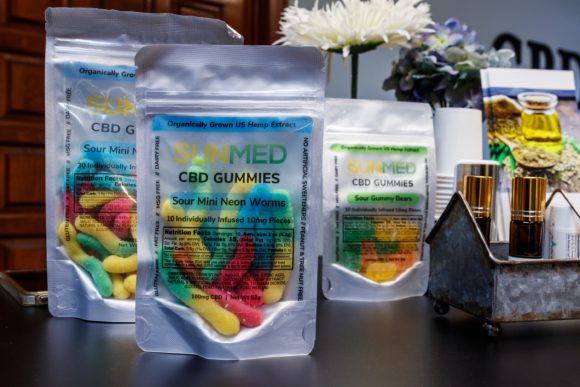I had a chance to read an exclusionary endorsement this week that was really interesting. Let me set the stage with a question.
Is there coverage for BI or PD related to the sale of CBD infused edible products?
Since it’s possible that you aren’t already in this realm, let me give you a quick rundown.
- CBD refers to products derived from hemp. Cannabidiols are the chemicals found in cannabis that are believed to provide much of the medical benefits that people desire from the use of cannabis. To comply with the 2018 Farm Bill, CBD products cannot contain any more than 0.3% THC by weight.
- Edible products refer to items that can be ingested in any way to receive the CBD. This distinguishes the edible from sprays, oils, salves, tinctures, and the like. CBD is often infused in gummy products.
Let’s get to the endorsement and see what we can find out.
This insurance does not apply to “injury,” “bodily injury,” “property damage,” “damages” or “personal and advertising injury” arising out of the sale, consumption, use or the exposure to the consumption or use of:
- “Marijuana”;
- “Edible marijuana-infused product”;
- “Marijuana-infused product”;
- “Cannabis”;
- “Cannabis containing product”; or
- Any material, substance or item containing tetrahydrocannabinol (THC).
As you can see the company that drafted this form is relying heavily on specific definitions to specifically exclude certain products. Let’s look at a few of these definitions so that we understand all that’s excluded here.
“Cannabis” means the following substances under whatever names they may be designated: the resin extracted from any part of a plant of the genus cannabis, and every compound, manufacture, salt, derivative, mixture or preparation of such plant, its seeds or its resin.
“Cannabis containing product” means a product containing “cannabis” that is intended for use or consumption, including but not limited to edible products, ointments, aerosols, oils and tinctures.
“Edible marijuana-infused product” means a “marijuana-infused product” that is to be consumed by eating or drinking.
“Marijuana” means all parts of the plant Cannabis sativa L., Cannabis indica or Cannabis ruderalis whether growing or not, including its seeds and resin extracted from any part of a plant and every compound, manufacture, salt, derivative, mixture or preparation of the plant, its seeds or resin. The term also includes “marijuana-infused product(s).”
“Marijuana-infused product” means a product infused with marijuana, including, but not limited to ointments, aerosols, oils, tinctures and edible products.
From the definitions, it would appear that the intent of this form is to exclude any product that includes cannabis in any form. If the form ended there, it should be a fairly cut and dry exclusion, but as you have probably guessed, there’s more to it than that. Here is the exception to the exclusion.
This exclusion does not apply to:
- Hemp, hemp containing products or products derived from hemp; or
- Cannabidiol (CBD) oils or extracts;
that contain trace amounts of 0.3% or less of tetrahydrocannabinol (THC).
Some of the confusion around cannabis risks is in the legality of certain products. Hemp and CBD as defined here are legal countrywide as they fall under the definitions provided in the 2018 Farm Bill. Let’s get back to our original question.
Is there coverage for BI or PD related to the sale of CBD infused edible products?
We believe that it is possible that the specificity of the definition in the exclusion combined with the wording of the exception could mean that there is no coverage for CBD edibles. The exclusion mentions edible products specifically, but the CBD exception only mentions CBD oils or extracts.
However, as I read this form, I look at two specific items that control the products that are excluded and the products that could fall under the exception.
As I read the form, I am focusing on the final line of the exclusion that reads;
- Any material, substance or item containing tetrahydrocannabinol (THC).
This appears to be the key because as we see under the exception;
- Cannabidiol (CBD) oils or extracts; that contain trace amounts of 0.3% or less of tetrahydrocannabinol (THC).
THC is recognized as the active component in the cannabis plant that causes the high that people feel. It is also the compound that is regulated when a state approves medicinal cannabis use. In those states where adult use of cannabis is legal, this is the compound that adults are looking for because they are looking for the effect that it has on them.
If the intent is to exclude coverage for any products that contain that higher level of THC, then it would make sense that the exception would be broad enough to provide coverage for those products that fall within the acceptable level of THC. Products with CBD that can be purchased through reputable sources will include lab test results that indicate the purity, CBD content, and THC content of the product. That makes it verifiable to anyone who wants to know.
This is an example of a policy form that could be interpreted multiple ways. As a friend of mine put it, it’s dangerous; maybe we should find another market. I can’t say that I disagree.
Topics Cannabis
Was this article valuable?
Here are more articles you may enjoy.




 AIG Underwriting Income Up 48% in Q4 on North America Commercial
AIG Underwriting Income Up 48% in Q4 on North America Commercial  What Analysts Are Saying About the 2026 P/C Insurance Market
What Analysts Are Saying About the 2026 P/C Insurance Market  Florida’s Commercial Clearinghouse Bill Stirring Up Concerns for Brokers, Regulators
Florida’s Commercial Clearinghouse Bill Stirring Up Concerns for Brokers, Regulators  Judge Awards Applied Systems Preliminary Injunction Against Comulate
Judge Awards Applied Systems Preliminary Injunction Against Comulate 


